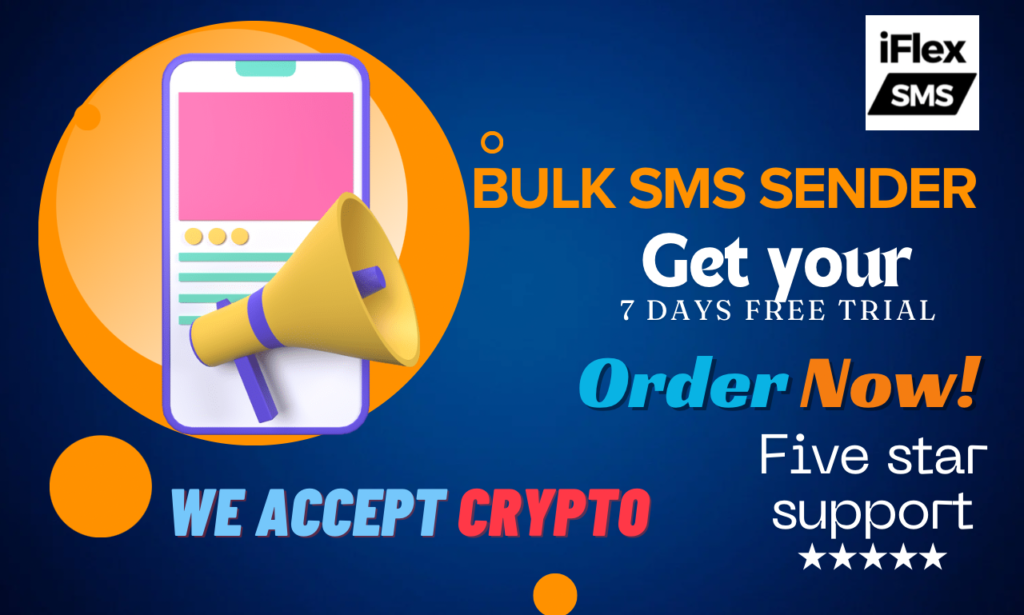SMS (Short Message Service) is an increasingly important tool in driving business results across industries. The use of SMS for business communication has evolved beyond traditional text messaging, becoming a powerful marketing and operational tool. Here are several ways in which SMS is driving business results:
1. Customer Engagement & Loyalty
- Direct Communication: SMS is one of the most personal and direct ways to communicate with customers. With high open rates (typically 98%), businesses can be sure their messages are being seen. This immediacy helps build a closer relationship with customers.
- Personalization: Businesses can send personalized offers, reminders, or updates based on customer preferences and behavior. Personalization increases customer engagement and fosters loyalty.
- Loyalty Programs: Many companies use SMS to deliver rewards and loyalty program updates directly to customers’ phones, encouraging repeat business.
2. Promotions and Offers
- Flash Sales & Discounts: Businesses often use SMS to notify customers about time-sensitive promotions, flash sales, or discounts. The immediate nature of SMS creates urgency and prompts quick action from recipients.
- Exclusive Deals: Brands can send exclusive offers via SMS to create a sense of privilege for customers, encouraging purchases and enhancing customer satisfaction.
3. E-commerce and Cart Recovery
- Abandoned Cart Reminders: E-commerce platforms use SMS to remind customers about abandoned carts. A quick SMS can prompt them to complete the purchase, driving higher conversion rates.
- Order Confirmation & Tracking: SMS is used to confirm orders, shipping, and provide tracking information, improving the customer experience and reducing cart abandonment.
4. Customer Support & Service
- Instant Customer Service: Many businesses use SMS as a customer support tool. It allows for quick resolution of issues, addressing customer concerns in a convenient and efficient manner.
- Appointment Reminders & Notifications: SMS is often used to remind customers of appointments, deliveries, or bookings. This reduces no-show rates for businesses like medical practices, salons, and repair services.
5. Marketing Automation
- SMS Campaigns: Companies can use SMS as part of automated marketing campaigns. By integrating SMS with other communication channels (like email or social media), businesses can provide seamless, multi-channel experiences.
- Triggered Messages: Businesses can set up automated messages that are triggered by specific actions or events, such as after a purchase or a product inquiry.
6. Improved Conversion Rates
- SMS as a Call-to-Action: Including a direct call-to-action in SMS, such as “Click here for 10% off your next purchase,” increases conversion rates. The convenience of clicking directly from a text message makes it easy for customers to follow through.
- Two-Way Interaction: SMS can be used for two-way communication, enabling businesses to gather feedback, answer queries, and even close sales, leading to better conversion and higher customer satisfaction.
7. Building Trust and Brand Reputation
- Consistent Messaging: SMS helps businesses deliver consistent and timely messaging, building trust with customers. Customers appreciate businesses that keep them informed about order statuses, promotions, and important updates.
- Transparency: SMS communication is often used to update customers about order delays, changes, or issues. Transparency in communication strengthens trust in the brand.
8. Global Reach
- International Communication: SMS works globally, making it an effective tool for businesses with international customers. Whether it’s sending a global discount code or an update on international shipping, SMS has the potential to reach a wide audience.
9. Operational Efficiency
- Internal Communication: SMS is not only useful for customer interaction but also for internal business operations. Companies can use SMS for internal alerts, reminders, or communication across teams, helping improve workflow efficiency.
- Staff Alerts: Businesses can use SMS to quickly notify employees of important updates, like schedule changes, event details, or emergency notifications.
10. Cost-Effectiveness
- Low-Cost Marketing: Compared to traditional advertising methods like TV, print, or radio, SMS marketing is significantly more affordable. Businesses can reach large numbers of customers with a relatively low budget.
- High ROI: SMS marketing has a high return on investment due to its cost-effectiveness and its ability to generate quick responses.
Conclusion
SMS is an essential tool that businesses use to drive results in customer engagement, sales, marketing, and customer service. Its immediacy, high open rates, and direct communication make it an effective method for reaching customers and achieving business objectives. Whether for promotions, customer service, or operational communication, SMS continues to prove itself as a powerful tool for driving positive business outcomes.

